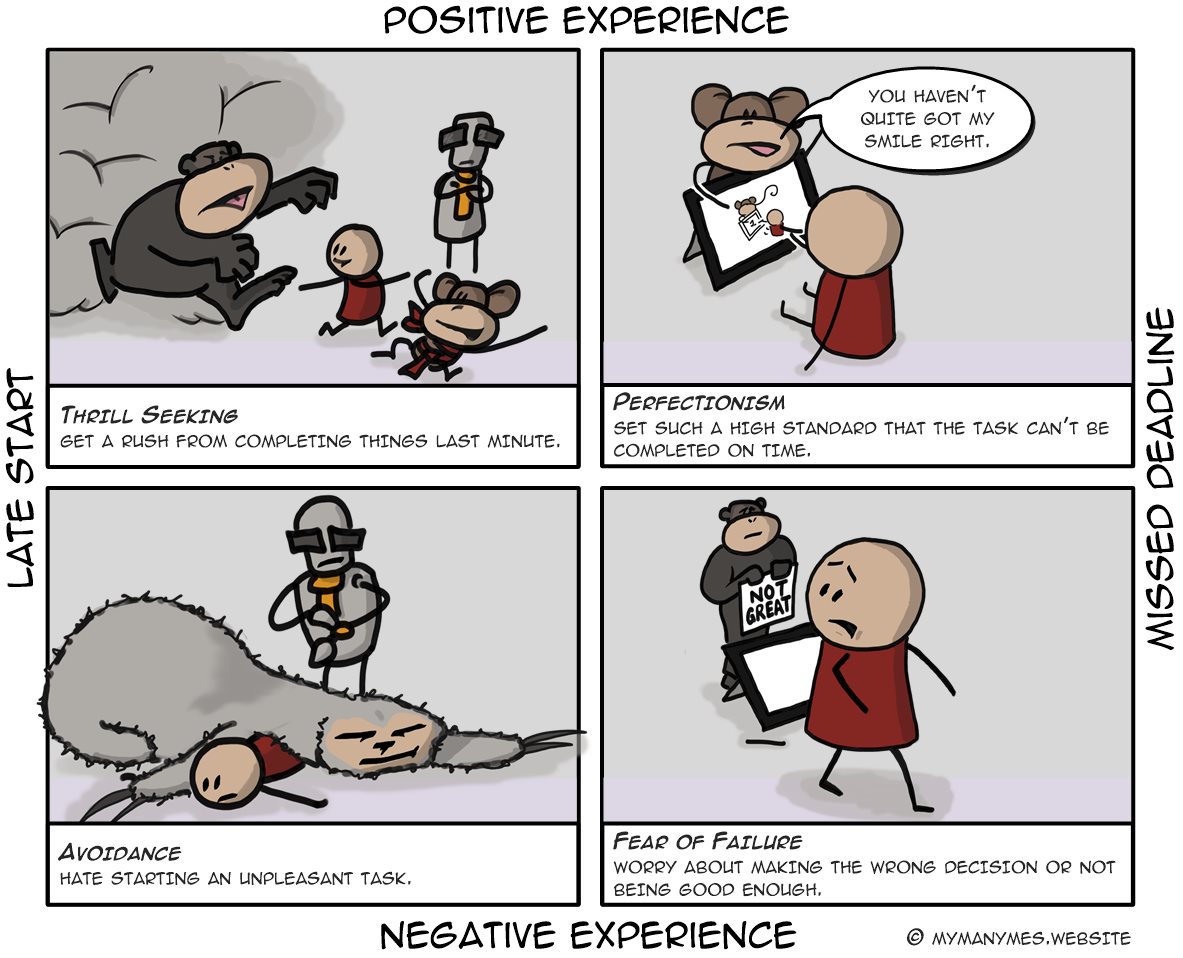The Chart of Procrastination

Procrastination is the art of putting something off until tomorrow what should have been done yesterday. Those who have mastered it will have embraced at least one of the four disciplines:
Do you specialise in a particular type of procrastination or are you an all-rounder? Find out more about each by clicking on the appropriate links above.
Don't expect to be a successful procrastinator without an effective team supporting you. How well do you know your team? How about "Sloth" who tries to sabotage new projects? Or "Gorilla" who worries you by exaggerating any potential problems? And let's not forget "Monkey" who slows you down by creating little diversions.
Beating the Procrash Team in Action
Although you may have a preferred procrastination method, in general, most people practice all four types. This is why it is often difficult to eliminate procrastination as any one could derail a task. Look for the reason for your procrastination rather than the labels or symptoms. You may exhibit perfectionism but why? Is it because you enjoy taking time to make things as perfect as they can be? Or is it because you worry about what people will think of the result? Or maybe you worry something will happen if it is not done perfectly. The last two cases are driven by fear and therefore is procrastination by "Fear of Failure" and fear coping strategies should be used.
In the above chart, the sides have labelled to indicate the net effect. For example, thrill seeking is generally a positive experience and associated with a late start. Whereas fear of failure is an unpleasant one and often leads to missed deadlines.
One type of behaviour not covered in the above chart is poor prioritisation. This is an important issue, but does not meet the our chosen definition of procrastination:
"Procrastination is to voluntarily delay an intended course of action despite expecting to be worse off for the delay", Piers Steel (2007)
as you are unaware that you are delaying a task unnecessarily. The topic of prioritisation is more than adequately covered in many articles and books such as Stephen Covey's The 7 Habits of Highly Effective People*.
* an asterisk at the end of a link means that if you click this link you will be taken to another site.
